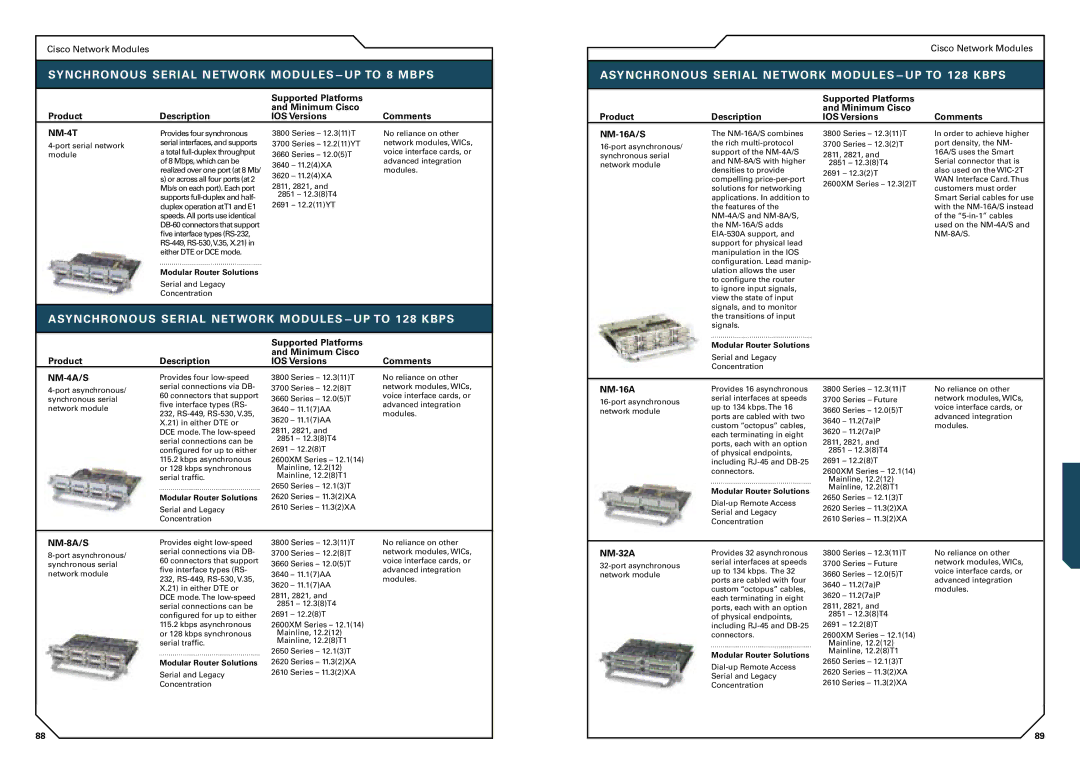1700, SOHO, 2800, 7200, 3700 specifications
Cisco Systems is a key player in the networking and communications industry, and its wide range of routers is a testament to its innovation and reliability. Among the most prominent models are the 7400, 7200, and 7300 Series routers, each with distinct features, technologies, and strengths that cater to diverse performance needs.The Cisco 7400 Series router is designed for service providers seeking high performance and scalability in their core and edge networks. It supports up to 1.2 Terabits per second of throughput, making it well-suited for handling large volumes of data traffic. One of its hallmark features is the support for advanced service chaining, allowing operators to deploy a mix of virtual and physical functions seamlessly. Additionally, the router supports redundant power supplies and fans, ensuring high availability and reliability. The 7400 Series is also equipped with advanced security features including integrated threat intelligence capabilities, which help protect against cyber threats while maintaining the quality of service.
Next, the 7200 Series is well-known for its versatility in both enterprise and service provider environments. It supports a variety of WAN interfaces and is capable of handling multiple protocols, including IP, Frame Relay, and ATM. This router provides modularity, allowing users to tailor the hardware configuration to their specific needs with interchangeable interface cards. The 7200 Series is optimized for voice and data convergence, making it ideal for businesses that require robust support for unified communications. Additionally, it features enhanced security options, including Cisco IOS Firewall and IPS services to safeguard data integrity.
Finally, the Cisco 7300 Series router excels in providing high-performance routing for enterprises and service providers, particularly in edge routing scenarios. It offers a balance between performance and cost, with a processing capability that meets the demands of growing bandwidth needs. The 7300 Series supports various interfaces for both synchronous and asynchronous communication, making it a flexible choice for integrated network environments. It is designed to support IPv6, which is increasingly important for modern networking as organizations transition towards next-generation Internet architectures.
In summary, Cisco's 7400, 7200, and 7300 Series routers are built to meet the needs of a range of users, from large-scale service providers to medium-sized businesses. Each model brings unique capabilities to the table, providing solutions that prioritize performance, scalability, and security. As organizations continue to evolve their networking capabilities, Cisco's routers remain a go-to choice for reliable and advanced networking infrastructure.

